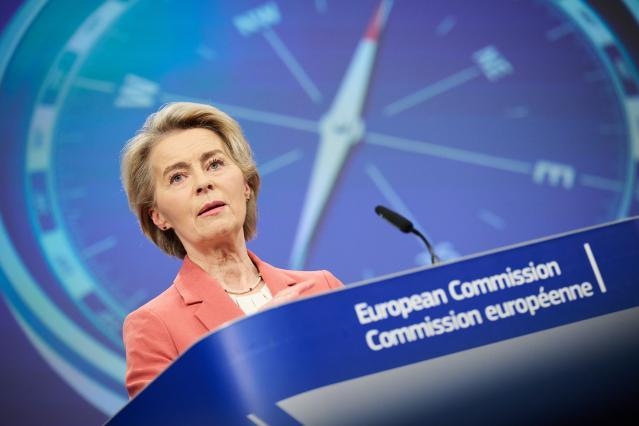I am not an economist or a financier but in today’s world anyone with a little common sense and knowledge of the political reality is capable of detecting the truth or falsity of political proposals.
The first work programme of the Von der Leyen II Commission is already here. Yesterday, the European Commission announced with great fanfare its Compass of Competitiveness for the European Union, a new and comprehensive five-year programme to which we are already accustomed. Remember what the Green Deal was, has been and is, the effects of which have not been suspended but are still being felt.
The Commission says that the Compass of Competitiveness places this as one of the main principles for community action in this legislature, which shows, as many parties, specialists and leaders have denounced, that in the last legislature – and perhaps some more – the Union had renounced the competitiveness of its companies, of its economy.
I’m not going to hide it. The document presented yesterday by the Commission sounds like a new scam. The wording, the public communication and the propaganda announce big changes in the way things are done in Brussels, but when you read the whole document, the feeling you are left with is that everything is going to continue more or less the same.
For example, the repeated need for all countries to be aligned. Why? Brussels still fails to understand that each Member State has its own needs, priorities or sectors that it considers it should strengthen. Brussels does not renounce the planning and direction of national economies, from the legislative task, but it forgets that economies grow, like trees, when they have water, sun and space. And that is what politicians should be doing, freeing the jungle of rules, restrictions, prohibitions, limitations and directions from the elites.
But let’s continue examining the executive summary of this Competitiveness Compass. The Commission certainly brings back words that seemed forgotten, such as competitiveness (what a missed opportunity the six months of the Hungarian presidency are, where Orban constantly talked about competitiveness but the anti-democratic cordons sanitaires of the socialist popular majority have systematically blocked the work in progress and the initiatives of Budapest!), coordination, single market, or simplification. However, what happens is that others that seem to be insurmountable obstacles, such as regulation, decarbonisation or public funding, do not disappear.
We cannot forget that the world has changed radically in a few weeks. Trump’s brutal victory and his first decisions – which demonstrate his firm determination to carry out his economic programme – should make the Commission think, and this does not seem to have happened. The fact that the United States has decided to withdraw from the Paris Agreement or is reasonably demanding that all NATO member states substantially increase their military or defence spending does not seem to have been taken into account.
If there is one thing we know in Europe, after 70 years of practically uninterrupted dominance of social democratic policies based on planning and increased public spending, it is that regulating does not create wealth, imposing rules does not encourage good economic behaviour and entrepreneurship and the permanent creation of authorities, agencies and public inspection services does not guarantee good results.
I am not saying that sometimes — and in specific sectors of reality such as justice, internal and external security, defence — such public intervention is not only appropriate, recommended or even essential; as is also the case with intervention in accordance with the principle of subsidiarity in matters such as health or education.
But the functioning of the economy, innovation, research and job creation cannot be left to regulation. Moreover, experience tells us that the supposed benefits of planning utopias usually lead to economic failure, social collapse and the massive loss of rights and freedoms. We have the example of communism; but today we have the legislation that came out of the Von der Leyen I Commission.



 Subscribe
Subscribe